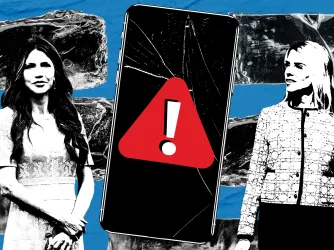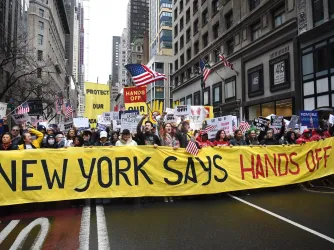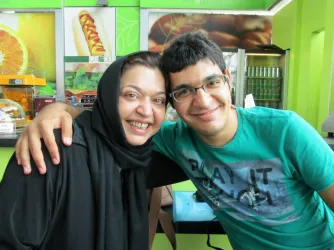Table of Contents
Students Critique Diversity and Academic Freedom at Columbia
Two student op-eds in The Spectator yesterday and today are worth a read. Here are some previews.
In the first article, “Another Kind of Diversity,” Jeff Waxman writes:
The ad hoc committee report, released March 31, has effectively done nothing. It’s what one would have expected: a lot of words that don’t combine to say anything. There’s plenty of talk about “grievance procedures,” “general examination,” and a review of “prerogatives and responsibilities,” but no talk about any of the real problems or any real solutions.
In the second article, “The Hypocrisy of Academic Freedom,” philosophy graduate student Costin Alamariu compares the MEALAC controversy with those at Harvard University, the University of Colorado, and DePaul University. He writes:
The fake issue of diversity is being manipulated to allow a routine abuse of academic integrity in the name of a nebulous academic freedom…. The provincialism and lack of general knowledge among graduates of this country’s best universities is unbelievable, and this is a result of an academic life that has been more concerned with indoctrinating students with pseudo-Marxist pablum than training them to be careful thinkers and readers with a broad base of knowledge.
While I agree with some points made by these students, I disagree with their conclusions that the solution lies in professors’ fulfillment of their “responsibility” of presenting “real scholarship” to students. The key to having a fulfilling classroom experience is often not content itself, but how the content is conveyed, shaped, absorbed, challenged, and made into shared knowledge by all members of the class. This involves students’ being conscious actors who take their learning into their own hands and do not expect that all their professors simply provide them with exactly what they demand. As I discussed in my last post, the report (and many of the critiques of the Columbia situation) is centered not on the students, but on the professors. Students are deemed passive consumers who are unsatisfied with the educational “products” they have purchased.
Yes, a professor’s pedagogical practice does play a huge role in the educational environment. The problem at Columbia and other campuses will not be resolved, however, if we don’t shift focus from what is being taught to how students (and professors) learn.
Recent Articles
Get the latest free speech news and analysis from FIRE.

FIRE sues Bondi, Noem for censoring Facebook group and app reporting ICE activity

Deep dive into New York’s proposals to ban demonstrations near houses of worship

Iran replaced my mother’s voice with silence
